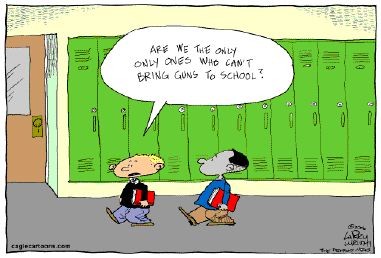Century Marks

Two paths diverged: An unpublished poem by Robert Frost was found earlier this year in a copy of North of Boston, Frost’s second book, given to his friend Frederic Melcher, the publisher who started the Newbery and Caldecott awards for children’s literature. The poem, “War Thoughts at Home,” was written as a tribute to Edward Thomas, a friend who died in the trenches in World War I. This poem is the closest Frost came to condemning the war, according to Robert Stilling, who discovered the poem. In “A Romantic Chasm,” an essay published after World War II, Frost said that he wished Thomas were alive so he could ask him “if it isn’t true that the world is in parts and the separation of the parts as important as the connection of the parts” (Virginia Quarterly Review, Fall).
Faith-based foreign aid: In a four-part series, the Boston Globe (October 8-11) documents the way U.S. foreign aid is being channeled through religious organizations, mostly Christian ones. For instance, Food for the Hungry has received $10.9 million to provide training in hygiene and treatment of childhood illnesses in the mountains of Kenya. In a concluding editorial, the Globe acknowledges that many of the religious groups are doing an excellent job, and that the U.S. government has been relying upon them for decades. But the percentage of foreign aid going to faith-based organizations has nearly doubled during the Bush administration, and the rules that enforce the separation of church and state have been weakened. The Globe also worries about the impact of using Christian organizations as conduits of aid in Muslim countries at a time when the U.S. is trying to assure Muslims that it is not engaged in a religious campaign against Islam.
Give us a break: There are two almost identical retirement communities in South Bend, Indiana. At one, residents pay over $2,000 per unit in property taxes. The Brothers of the Holy Cross, the developers of the other community, located at the University of Notre Dame, are seeking a tax exemption for their residents because they believe that their retirement community is part of their order’s mission to serve others. Members of the county tax assessment board of appeals, all but one of whom are lifelong Catholics, argue that this exemption simply shifts the city’s tax burden to struggling working-class families. Residents of the Holy Cross retirement community have an average net worth of $1 million (New York Times, October 10).
It’s about guns: The recent spate of gun violence in American schools has again raised concerns about the proliferation of handguns and firearms. Consider that in the U.S. there are about 17,000 murders each year, 15,000 of which are committed by wielders of firearms. In contrast, there are fewer than 350 gun-related murders each year in Britain, Australia and Canada. Suicide rates are also revealing: the non-gun-related suicide rate in the U.S. compares to that of the rest of the developed world, but when guns are factored in, the U.S. suicide rate is twice that of the developed world. Every eight hours an American youth commits suicide using a gun. Perhaps no advances will be made on gun control until Americans connect it to terrorism. Why make it easy for terrorists to get assault rifles? (Independent, October 4).
Someone’s singing, Lord: “No one wants to sing Kum-by-ya” is a favorite expression of those who want to eschew sappy spirituality or superficial fellowship, notes Jeffrey Weiss of the Dallas Morning News, who began to wonder about the origin of the song. Ethnomusicologist Thomas Miller says it apparently originated as a spiritual among the Gullah, an African-American people who live in the Sea Islands and the coastal regions of South Carolina and Georgia. It’s believed that a missionary couple transported the song to Angola. It was rediscovered there and brought back to the U.S. in time for the folk-singing revival in the 1950s and 1960s (dallasnews.com).
Searching: Here are some proposed Google products you might like, but don’t hold your breath (Time, October 16):
• Ex Search: Find out if they’re seeing anyone
• Soul Search: Browse and organize your sins, vices and failings
• Senior Search: Find out what you went upstairs for
• Freudgle: Search your unconscious mind
• Schadenfreude Alerts: Get e-mail updates on bad things that happen to your obnoxious friends
• Afterlife Search (beta): Find friends and relatives in heaven and the other place
Planting seeds, reaping a harvest: Foods Resource Bank has landed on a hopeful, hands-on way of addressing world hunger. Urban churches are encouraged to partner with rural farmers and churches to find a plot of ground on which to grow crops or raise livestock. The proceeds from the harvested crops are used to purchase seeds, animals and tools and to provide agricultural training for people in communities in the developing world. FRB, which has the backing of numerous Christian denominations and relief organizations, works toward self-sufficiency in local communities, rather than dealing with short-term needs or crises. For more information, check out FoodsResourceBank.org.




